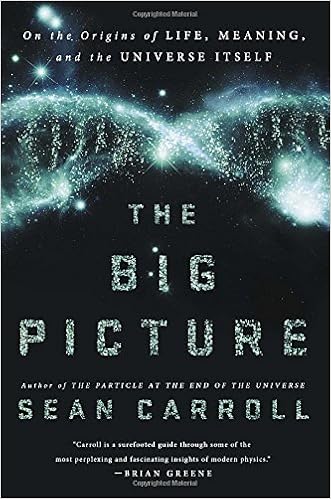 As exemplified in Sean Carroll’s new book, The Big Picture,
As exemplified in Sean Carroll’s new book, The Big Picture,
From Columbia mathematician Peter Woit at Not Even Wrong:
The last chapter of the book begins with a description of Carroll’s early experiences in the Episcopal church, which he was quite fond of. I also had such experiences (I was an altar boy for several years at an Episcopal church, the American Cathedral in Paris). Unlike Carroll, I was never a believer, but just figured this was one of quite a few mystifying things that adults got up to, and that it seemed I had to go along with it until I got older. Thinking back to those days, I was struck by the realization that I recognized the tone and a lot of the content of Carroll’s writing. It very much sounds like a sermon, one evangelizing the good news not of Jesus, but of science, and is aiming for much the same effect: “I want to shiver with awe and wonder at the universe”.
My own point of view on all of this is that I just don’t think theoretical physicists have anything useful to tell the average person about meaning and morality, other than that it’s a mistake to search for it in our discoveries about physics. I don’t understand why we’re increasingly seeing texts promoting physics as inspiration for how to live (for another recent example among many see here). I’m with Steven Weinberg, and his famous line
The more the universe seems comprehensible, the more it also seems pointless.
Given that, the best advice to people who come to physicists looking for the meaning of life seems to me to politely tell them that they’re looking in the wrong place and asking the wrong person. More.
Carroll’s stuff may be nonsense but it is secular superstition – just the kind of nonsense that sells:
Amazon Bestsellers Rank: #114 in Books (See Top 100 in Books)
- #1 in Books > Professional & Technical > Professional Science > Astronomy > Cosmology
- #1 in Books > Professional & Technical > Professional Science > Physics
- #1 in Books > Science & Math > Astronomy > Cosmology
See also: Multiverse cosmology: Assuming that evidence still matters, what does it say?
and
In search of a road to reality
Follow UD News at Twitter!